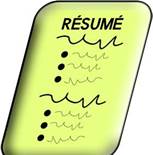 Reprinted from Journal of Court Reporting, June 2008
Reprinted from Journal of Court Reporting, June 2008
How many reporters quit the business altogether because of bad firm experiences?
As a court reporter and former teacher who loves our profession, I hate seeing new reporters end their careers before they have even begun. Our future relies on these rare souls with the tenacity to make it through the program to begin with. Even seasoned reporters can fall victim to the unscrupulous, relying on the reputation of honesty and integrity that most court reporters deservedly enjoy. These reporters end their careers feeling ashamed and defeated. When these things happen, it should be a crime for all of that talent and education to be thrown away due to the likes of a few firms that should come with a warning label.
There are many questions to ask of a potential employer during the interviewing process: “What are my job requirements? Do you offer training? What can I expect to be paid? What are the terms of payment? Will I work onsite or work from home?”
These questions might have been thorough over a decade ago when I started reporting, when firms were named after the people who had client contact and a reputation to uphold. But, with the proliferation of non-reporter owners who may be more interested in the bottom line than the firm’s reputation, do they need to probe deeper?
One question that may not come to mind or that you may be uncomfortable asking is: “What is your reputation in the community in which you work?” Of course, you would expect nothing but accolades from the reporting firm representative, but I suspect that the firm you wish to work for may not be the source that will give you the most accurate information.
One would think that a reporter could phone attorneys and ask for a reference on the court reporting firm with whom they’re seeking employment. Calls to a state association to check on their membership status could also produce valuable information. A few phone calls later, you might find that, yes, their clients are happy with them. But what value is this information really? Being members in good standing with their state association means they pay their yearly dues. The clients have nice things to say about them, but if they didn’t, wouldn’t they find someone else for their reporting needs?
My advice to reporters seeking employment is to phone a reporter colleague in the area and ask, “Who would you work for?” After years of coexisting in the same market, the reporters are the ones most privy to the reputations of the firms in the area, and they have learned by trial and error who is deserving of praise and respect and who should be approached with caution. I suggest that if the firm you are thinking about working for isn’t mentioned in their list, that might be a red flag for you to keep looking for alternative means of employment. Make more than one call, too. If the firm you’re considering is seeking employees from four states away, is that due to a shortage of reporters in the area, or because they have already burned too many bridges locally to entice reporters to come aboard?
Keep in mind that competing firm owners or reporters may be leery of saying anything negative because they have their own interests to protect, i.e. slander. But to date, I haven’t heard of a lawsuit being filed against someone who had a compliment to pass along.
Do your research, ask around, and ask the right questions of your prospective employer before you make the decision to come aboard.
